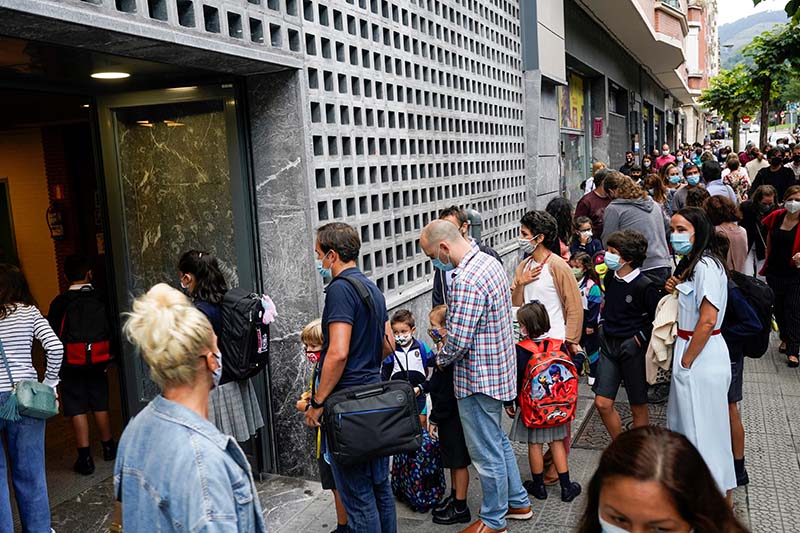Worldwide coronavirus cases cross 27.34 million, death toll over 891,000
At least 27,342,991 people have been reported to be infected by the novel coronavirus globally and 891,281 people have died, a Reuters tally showed.
Spain became the first country in Western Europe to register 500,000 coronavirus infections, after a second surge in cases that coincided with schools reopening, while Argentina's death toll surpassed 10,000.
Infections have been reported in more than 210 countries and territories since the first cases were identified in China in December 2019.
The World Health Organization referred to the outbreak as a pandemic on March 11.
DEATHS AND INFECTIONS
At least 6,315,840 cases of the highly contagious novel coronavirus have been reported in the United States and its territories while at least 189,240 people have died, according to a Reuters tally of state and local government sources as of September 8, 2020, 9:19 am. The US diagnosed its first COVID-19 case in Washington state on January 20.
Likewise, India follows the US with a total of 4,204,613 coronavirus cases with 71,642 death, according to Reuters’ interactive graphic tracking the global spread.
Likewise, Brazil has the third-highest 4,147,794 coronavirus cases while 126,960 people have died.
ASIA-PACIFIC
— A spike in infections in Indonesia's holiday island of Bali and Thailand's first locally transmitted case in 100 days have dealt further blows to Southeast Asian hopes of reviving vital tourism industries.
— The Australian state at the centre of the country's second wave coronavirus outbreak is deepening its contact tracing programme to try to maintain a steady decline in daily new cases.
— Thousands of trainee doctors in South Korea returned to work after ending a more than two-week strike as the country continued to post three-digit rises in new daily infections.
— India overtook Brazil as the second-worst hit country by the COVID-19, Malaysia reported its sharpest rise in new cases in three months, and South Korea weighed whether to extend curbs ahead of a national holiday.
EUROPE
— England's deputy chief medical officer said the rise in the number of cases was of great concern and people had "relaxed too much" over the summer.
— The number of confirmed cases in France rose again compared with the previous day, as did the death toll, as the country battles to contain a likely second wave of the virus.
— Seven Greek islands have been added to the list of countries from which travellers must quarantine when entering England, British transport minister Grant Shapps said.
AMERICAS
— Cases are rising in 22 of the 50 US states, according to a Reuters analysis, a worrying trend on a Labour Day holiday weekend traditionally filled with family gatherings and parties to mark the end of summer.
MIDDLE EAST AND AFRICA
— Iraq is reopening its land border crossings, restaurants, hotels, and bringing back sporting events without spectators, the prime minister said, three days after it recorded its highest daily increase in infections.
— Oman will restart international flights on Oct. 1, state news agency ONA said on Twitter.
MEDICAL DEVELOPMENTS
— The World Health Organization (WHO) is in talks with India about joining the "COVAX" global vaccine allocation plan, a senior WHO adviser said.
— Russia will begin offering its COVID-19 vaccine to volunteers this week as part of a trial following the vaccine's registration, the TASS news agency quoted the health minister as saying.
— The WHO is working with China on requirements for international approval of any Chinese COVID-19 vaccine, a senior official said.
— Chinese firm Sinovac Biotech Ltd said its coronavirus vaccine candidate appeared to be safe for older people, according to preliminary results from an early to mid-stage trial.
ECONOMIC IMPACT
— Japan's economy sank deeper into its worst post-war contraction in the second quarter as the coronavirus jolted businesses more than initially thought.
— The German economy is recovering from the coronavirus shock and will reach its pre-crisis size at the beginning of 2022 at the latest, Finance Minister Olaf Scholz told Reuters.






